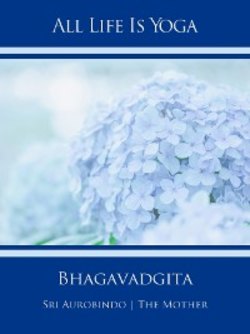Читать книгу All Life Is Yoga: Bhagavadgita - Sri Aurobindo - Страница 21
Chapter 5 The Yoga of Renouncing Work
Оглавление1. Arjuna said:
Thou declarest to me the renunciation of works, O Krishna, and again thou declarest to me Yoga; which one of these is the better way, that tell me with a clear decisiveness.
2. The Blessed Lord said:
Renunciation and Yoga of works both bring about the soul’s salvation, but of the two the Yoga of works is distinguished above the renunciation of works.
3. He should be known as always a Sannyasin (even when he is doing action) who neither dislikes nor desires; for free from the dualities, O mighty-armed, he is released easily and happily from the bondage.
4. Children speak of Sankhya and Yoga apart from each other, not the wise; if a man applies himself integrally to one, he gets the fruit of both.
5. The status which is attained by the Sankhya, to that the men of the Yoga also arrive; who sees Sankhya and Yoga as one, he sees.
6. But renunciation, O mighty-armed, is difficult to attain without Yoga; the sage who has Yoga attains soon to the Brahman.
7. He who is in Yoga, the pure soul, master of his self, who has conquered the senses, whose self becomes the Self of all existences (of all things that have become), even though he does works, he is not involved in them.
8-9. The man who knows the principles of things thinks, his mind in Yoga (with the inactive Impersonal), “I am doing nothing”; when he sees, hears, tastes, smells, eats, moves, sleeps, breathes, speaks, takes, ejects, opens his eyes or closes them, he holds that it is only the senses acting upon the objects of the senses.
10. He who, having abandoned attachment, acts reposing (or founding) his works on the Brahman, is not stained by sin even as water clings not to the lotus-leaf.
....
